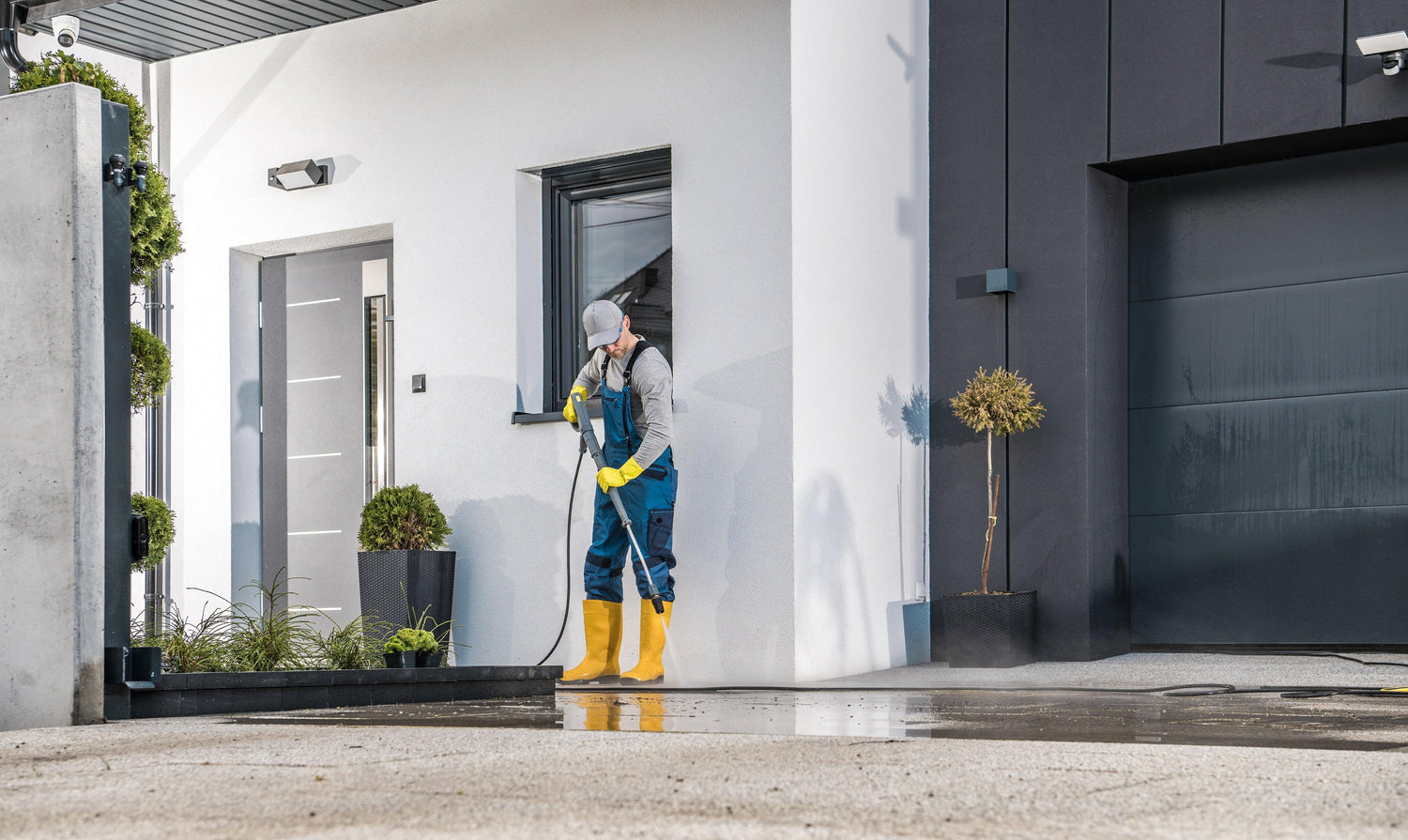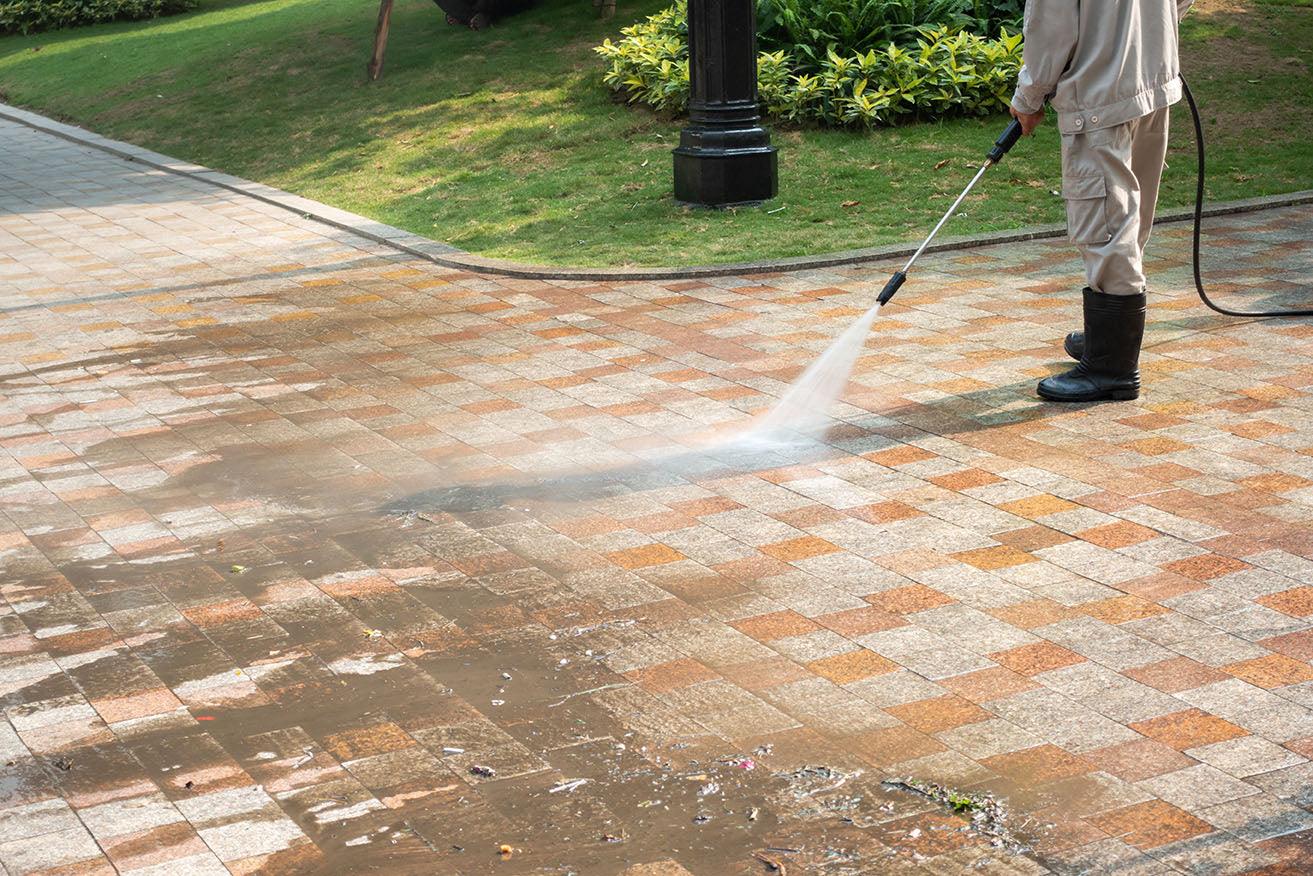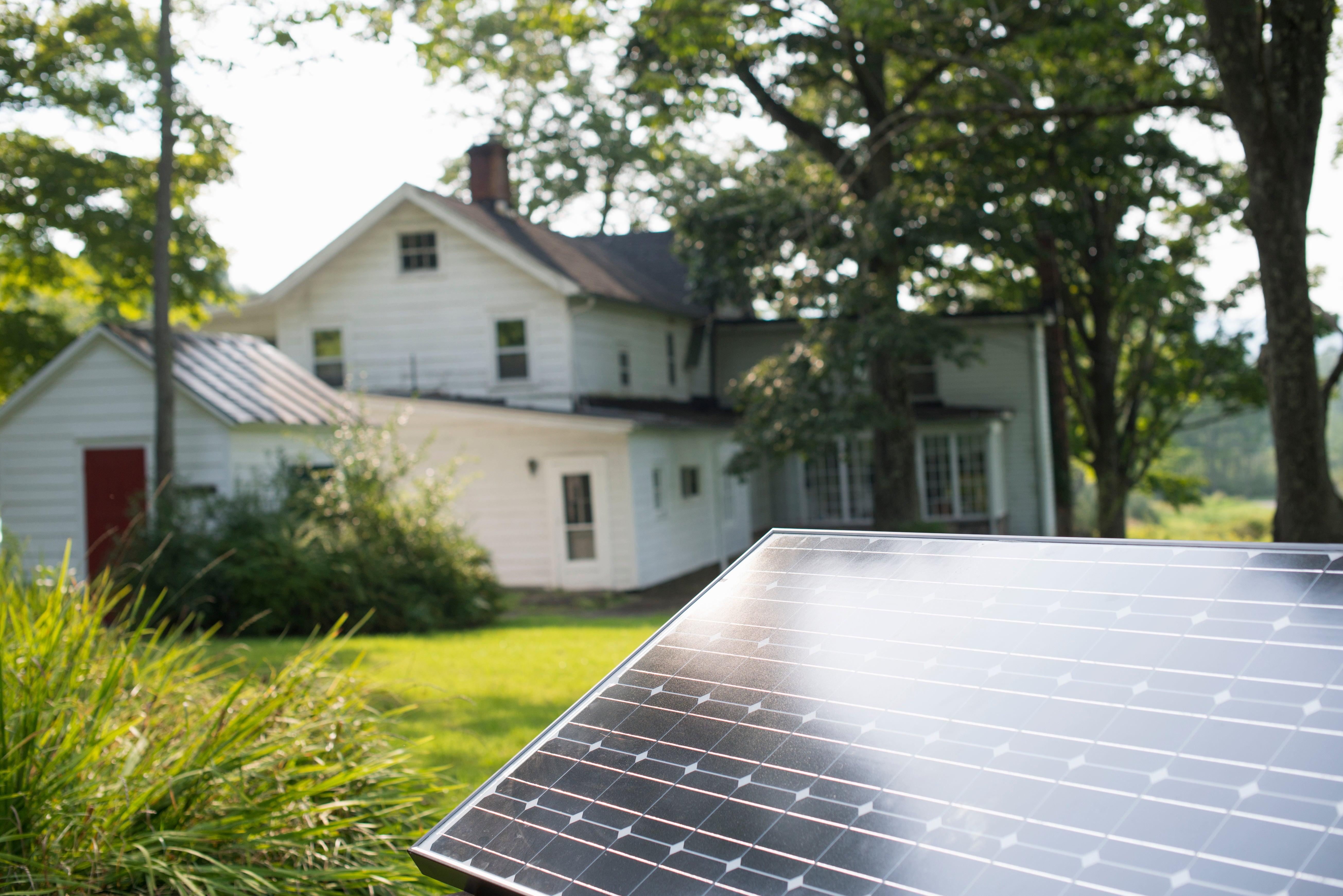The world outside your home is a diverse landscape, and each surface – from delicate stucco to sturdy brick – requires specific care to maintain its beauty and functionality. Just as you wouldn't use a wrench to tighten a screw, selecting the wrong cleaning product for your exterior surfaces can lead to costly repairs and diminished curb appeal.
By investing in the right cleaning products for your specific exterior surfaces, you'll not only save time and money in the long run, but also protect your valuable home investment.
Identifying the Surface Type
Selecting the right cleaning product depends heavily on the surface you're tackling. Here's why understanding different exterior surfaces is crucial for choosing the best cleaning solution:
Brick: This sturdy material is naturally resistant to many elements. However, harsh cleaners can damage the mortar joints between bricks, allowing moisture to seep in and cause cracks. Opt for a gentle, pH-neutral cleaner specifically designed for brick to remove dirt and grime without compromising the integrity of the surface. We created SWAM with this substrate in mind.
Vinyl Siding: This popular choice requires a different approach. Harsh chemicals can fade or discolour vinyl, while abrasive cleaners can scratch the smooth surface. A mild soap solution or a cleaner specifically formulated for vinyl will effectively remove dirt and maintain the siding's original look.
Wood: Wooden surfaces like decks and fences require special care. Harsh chemicals can strip away the natural oils and protective coatings, leaving the wood vulnerable to rot and moisture damage. Opt for a wood cleaner that removes dirt and grime while also nourishing the wood fibres. Additionally, consider using a sealant after cleaning to further protect the wood from the elements.
Concrete: This tough and durable surface can withstand stronger cleaning solutions. However, using overly acidic cleaners can etch the concrete, leaving a dull or pitted appearance. Choose a cleaner designed for concrete that effectively removes dirt, stains, and mildew without damaging the surface.
Understanding the specific needs of each exterior surface allows you to select a cleaning product that effectively removes dirt and grime while protecting the material.
Best Cleaning Products for Each Surface Type
Brick
Recommended Products: For builders cleaning on brick where we’re removing the cementitious smear and residual mortar, we recommend EBC Restorer. Diluted at a ratio of 3:1 and applied with a pump sprayer, then pressure wash the surface at not more than 2000PSI with a 25-degree fan-tip.
For cleaning brick surfaces of moss, mold or mildew, apply SWAM at a diluted ratio of 10:1. Leave the solution for a period of 6-12 months. SWAM will continue to clean the surface of the substrate over time.
Alternatively, an application of Softwash solution including sodium hypochlorite and a thorough rinse may achieve desired results.
Vinyl Siding
Recommended Products: An application of Softwash solution including sodium hypochlorite and a thorough rinse should give you your desired results. Some vinyl siding may react to sodium hypochlorite (bleach) if applied too strong. This can be rectified with a post-treatment of Spitzer which is a light acid-based product. It will neutralise the surface should it be required.
Wood
Recommended Products: Wood-specific cleaners are formulated to clean and protect wood exteriors. These cleaners typically contain mild detergents and brighteners that remove dirt and grime without harming the wood fibers. Some wood cleaners also contain protectants that help to repel water and UV rays, further preserving the wood.
Additional Tips:
Always follow the manufacturer's instructions for any cleaning product you use.
When cleaning any exterior surface, it's important to rinse the area thoroughly with clean water afterwards.
For stubborn stains or heavily soiled areas, it may be necessary to consult with a professional cleaning company.
Eco-Friendly and DIY Cleaning Solutions
Keeping your home's exterior clean and beautiful doesn't have to come at the expense of the environment. In the past, we’ve had plenty of customers who are looking to DIY their house clean, seeking eco-friendly solutions. Here are some of the cleaning products and alternatives we recommend to them:
General Cleaning:
Vinegar and Water Solution: This classic duo is a powerful at-home blended cleaner. A mixture of equal parts white vinegar and water can tackle dirt, grime, and mildew on most exterior surfaces like brick, vinyl siding, and concrete patios. For tougher stains, try a stronger solution (2 parts vinegar to 1 part water). Great for cleaning wooden decks and fences. For a natural wood brightener, you can also try a mixture of lemon juice and water.
Baking Soda Paste: This gentle abrasive is perfect for removing light stains and marks. Make a paste with baking soda and water and apply it to the affected area. Scrub gently with a soft brush and rinse thoroughly. Works great on stained clothes and carpet, as well as dirty or faded bricks. This will remove dirt without damaging the mortar joints.
Castile Soap: This natural, plant-based soap is a great alternative to harsh chemical detergents. Dilute a small amount of castile soap in water to create a mild cleaning solution for surfaces like painted wood and vinyl siding. You can find castile soaps at chemists or often at local markets!
Note that for cleaning concrete paths and driveways you can create a solution with warm water and oxygen bleach. Oxygen bleach is a safe and effective alternative to chlorine bleach (the type we typically use in the external cleaning industry), which can damage plants and discolour concrete.
Safety Tips for Using Cleaning Products
Read the Label: Before you even twist the cap, read the label thoroughly, understanding the warnings, ingredients, and proper use instructions.
Wear the Gear: Wear rubber gloves to shield your hands, especially when dealing with harsh chemicals. For some tasks, safety goggles might be necessary to guard your eyes.
Fresh Air is Key: Don't underestimate the power of ventilation. Open windows and doors whenever possible to create airflow and prevent fumes from building up in your cleaning zone, unless of course you’re cleaning externally. In which case, don’t forget to seal all open windows and doors to stop water damage inside the home.
Store Safely, Out of Reach: Once you've finished your cleaning quest, store those products securely. Keep them out of the reach of children and pets, in a cool, dry location (check the label for specific storage instructions).
Avoiding Harsh Chemicals
It’s easy to assume that harsh chemicals are required for tough external cleaning jobs, but their power comes with a price. Here's why opting for milder, safer cleaning options is a good idea for your home and your health:
Harsh chemicals can break down the surfaces they're supposed to clean. Strong cleaners on decks etc. can erode the wood fibres, leading to warping and cracking which may result in deck and fence replacements being required far sooner than they should be.
Similarly, harsh chemicals can deteriorate paint and stains. They can fade colours or cause uneven bleaching, leaving your exteriors looking patchy and dull.
For metal surfaces like gutters or railings, harsh chemicals can strip away protective coatings, accelerating the rusting process. Avoid when possible.
Choosing the right cleaning products and methods matter. The good news is that there are many powerful cleaning solutions that are still gentle on surfaces like those we’ve mentioned. These can tackle organic growth without causing the damage of harsh chemicals, to yourself or surroundings.
After all, whether you’re concerned about protection from the elements or more focused on upkeeping the aesthetic of your lovely home, knowing you're using eco-friendly products to care for your home brings peace of mind.
At the end of the day, you can rest assured you're doing your part to protect yourself as well as your investment and keep your home looking and feeling it’s best.




Leave a comment
This site is protected by hCaptcha and the hCaptcha Privacy Policy and Terms of Service apply.